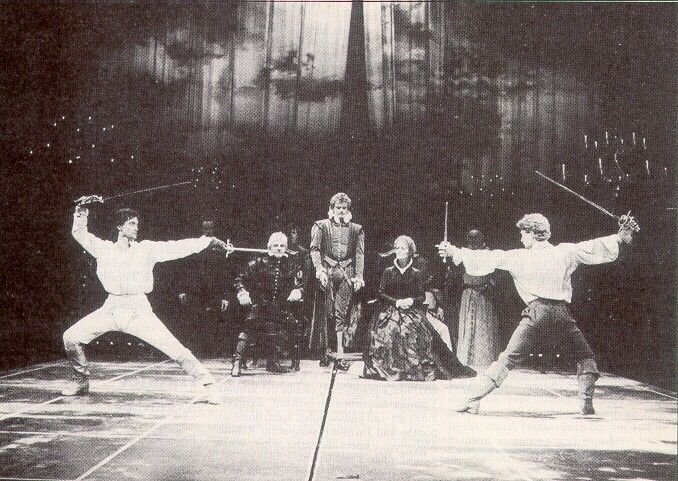WHRO | By Kate Nowak
Published February 10, 2025
The Pulitzer-Prize-winning play reimagines Shakespeare's tragedy at a Southern family barbecue.
“Fat Ham,” by James Ijames, is a modern take on Shakespeare’s “Hamlet” and uses biting humor, absurdly big personalities and heart to explore familial tensions and cultural expectations in the context of a Southern barbecue.
The Pulitzer-prize-winning show, produced by the Virginia Stage Co., features Juicy, our modern Hamlet, who grapples with what it means to be a young queer Black man rejecting the violent and hardened examples of manhood he’s always known.
Juicy has planned a party to celebrate his mother’s recent wedding. The nuptials, however, have caused a stir: His mother married shortly after her husband was killed. And she’s married her late husband’s brother. The ghost of Juicy’s father appears, telling Juicy to avenge his death.
“ 'Hamlet,' but a Black barbecue, is intriguing and funny,” said Jerrell Henderson, the show’s director. He said that though the characters and scenes can be outlandish, so is the source material.
“You can go through 'Hamlet' and buy everything that happens,” he said, "but when violence intersects with karaoke, intimate family drama and soul food, ‘Can you buy that?’
“The lives of African Americans throughout the course of our time in this country have been riddled with absurdity that we have had to grapple with simply because what else are you gonna do?” Henderson said.
The small cast brings depth and reality to their characters, which shines through the ridiculous quirks, dirty jokes and musical theatrics.
“They are characters,” Henderson said, “but they have heart.”
The play explores heavy themes and realities, but the large dose of comedy helps the medicine go down.
“Satire is humor with a bite … it’s got some darkness in it,” Henderson said, “but if you can laugh at it, it makes it easier to embrace.”
As a lifelong fan of Shakespeare, Henderson said “Hamlet” is a work steeped in rich and universal human experiences and emotion, which makes it ripe to be reworked into a modern context.
“That’s what we as artists do,” he said, “we reinterpret.”
Henderson said he is reevaluating what hope means to him with the current political landscape, pending environmental crises and cultural divides, but he thinks the ending of “Fat Ham” is a more hopeful alternative to the tragedy of “Hamlet.”
“Before we can move forward, we gotta unlearn,” Henderson said about the generational and cultural scars explored in the play. "But it’s possible to progress. We can do it; it has happened in American history. What if we reimagined our world?”
"Fat Ham" cast member Janae Thompson is a member of WHRO's Emerging Leaders Board. WHRO's advisory boards do not make editorial decisions.
"Fat Ham" plays through Sunday at the Wells Theatre, 108 E. Tazewell St. Tickets and show times are available at vastage.org.













